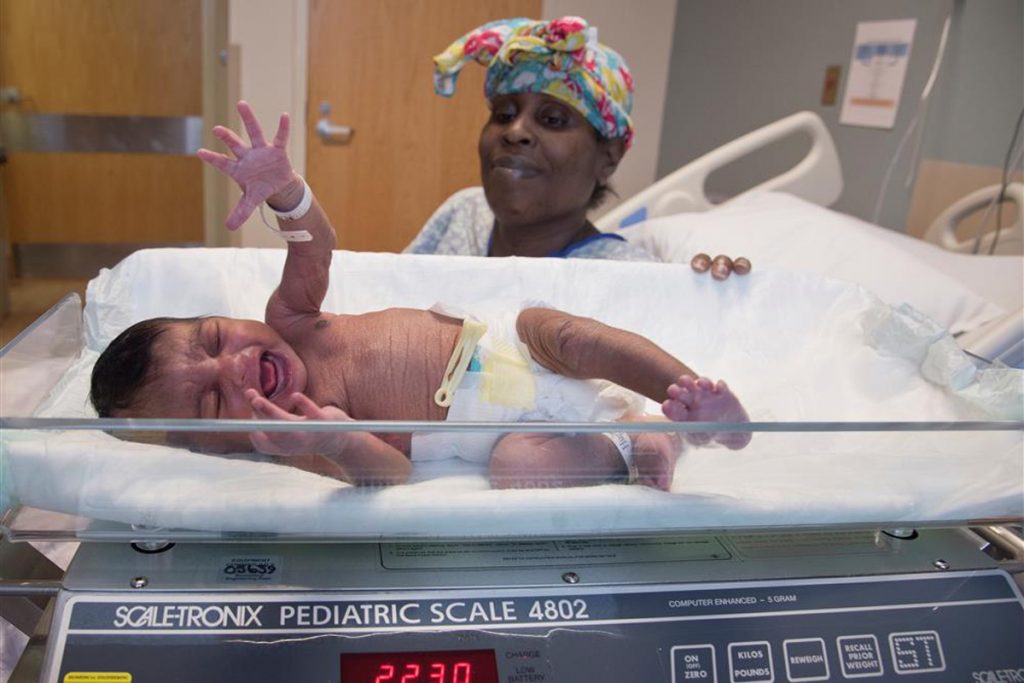A last-ditch attempt to extend Medicaid to roughly 300,000 additional Mississippians died on the Senate floor on Tuesday, after an amendment effort on the part of Democratic senators failed to gain traction with the chamber’s Republican majority.
The amendments would have expanded Medicaid access to all Mississippians living at or below 133% of the Federal Poverty Level, meaning individuals making roughly $17,000 a year or a family of three making just under $30,000 combined would have qualified for Medicaid coverage. Both amendments died along partisan lines, 36-16.
But one key provision extending postpartum Medicaid coverage for pregnant Mississippians survived, contained in Section 1 of Senate Bill 2799. If S.B. 2799 passes the House and the governor’s desk, Mississippians will qualify for Medicaid for a full year after the end of their pregnancies, up from a mere 60 days of coverage currently.
Significant Effect on Maternal Mortality

Such a change could have a significant effect on maternal mortality. A Mississippi State Department of Health study of maternal mortality in the state found that, from the years of 2013 to 2016, “86% of pregnancy-related deaths occurred postpartum, including 37% after 6 weeks.”
The latter number—over a third of pregnancy-related fatalities occurring over six weeks postpartum—reflects the population the new legislation targets. The study found that “cardiovascular conditions and hypertensive disorders of pregnancy were the two most common causes of pregnancy-related death in Mississippi,” and pegged Mississippi’s maternal mortality rate 20% higher than the national average.
That regional disparity is linked to racial disparity. Black women in the U.S. are more than three times as likely to die as a result of complications from pregnancy as white women.
Sen. Angela Turner Ford, D-West Point, called that disparity “a travesty” last year, committing to address the issue with legislation, less than a month before the COVID-19 pandemic derailed the plans of the entire planet. Now concrete legislation intended to address that issue is on its way to the House.
Currently, federal Public Health Emergency waivers allow for a year of Medicaid access postpartum because of the COVID-19 crisis, but those guidelines are set to expire on April 20. S.B. 2799 would maintain the extended timeline in perpetuity.
‘You’re Better Off Dead’
In spite of the opportunities the bill provides for pregnant Mississippians, a broader extension of Medicaid is not in the cards for the state in 2021. Republican opponents of the expansion amendments cited the cost of Medicaid and opposition to welfare expansion on an ideological level.
Sen. Hob Bryan, D-Amory, pushed back on objections to expansion in an interview with the Mississippi Free Press tonight. “The state of Mississippi would make money if we expanded Medicaid,” Bryan said. “We are costing ourselves money by refusing to allow the federal government to pour in well over a million dollars a day to take care of sick people in Mississippi, just out of spite.”

After the adoption of the Affordable Care Act in 2010, the federal government offered states 90% funding for extending Medicaid programs to all residents at 133% of the federal poverty line. Mississippi would receive more than $1 billion each year for expanding Medicaid.
Bryan said fears that the funding would be short lived or that costs to the state would balloon have proved unfounded, now a decade out from the passage of the law.
“Obamacare was going to be declared unconstitutional. The Republicans were going to take over, and they were going to repeal it. The feds were not going to be able to afford it because it was bankrupt. Argument after argument after argument. It’s just ridiculous,” Bryan argued.
Bryan was positive about the expanded postpartum timeline for Medicaid availability. But the lack of appetite for a true large-scale extension to the program has him audibly frustrated. “The argument is, if it takes a government program to save your life, you’re better off dead, because at least then you have your freedom,” he quipped.
“It’s just that stark,” Bryan finished.
Contributing reporter Erica Hensley contributed to this story.










